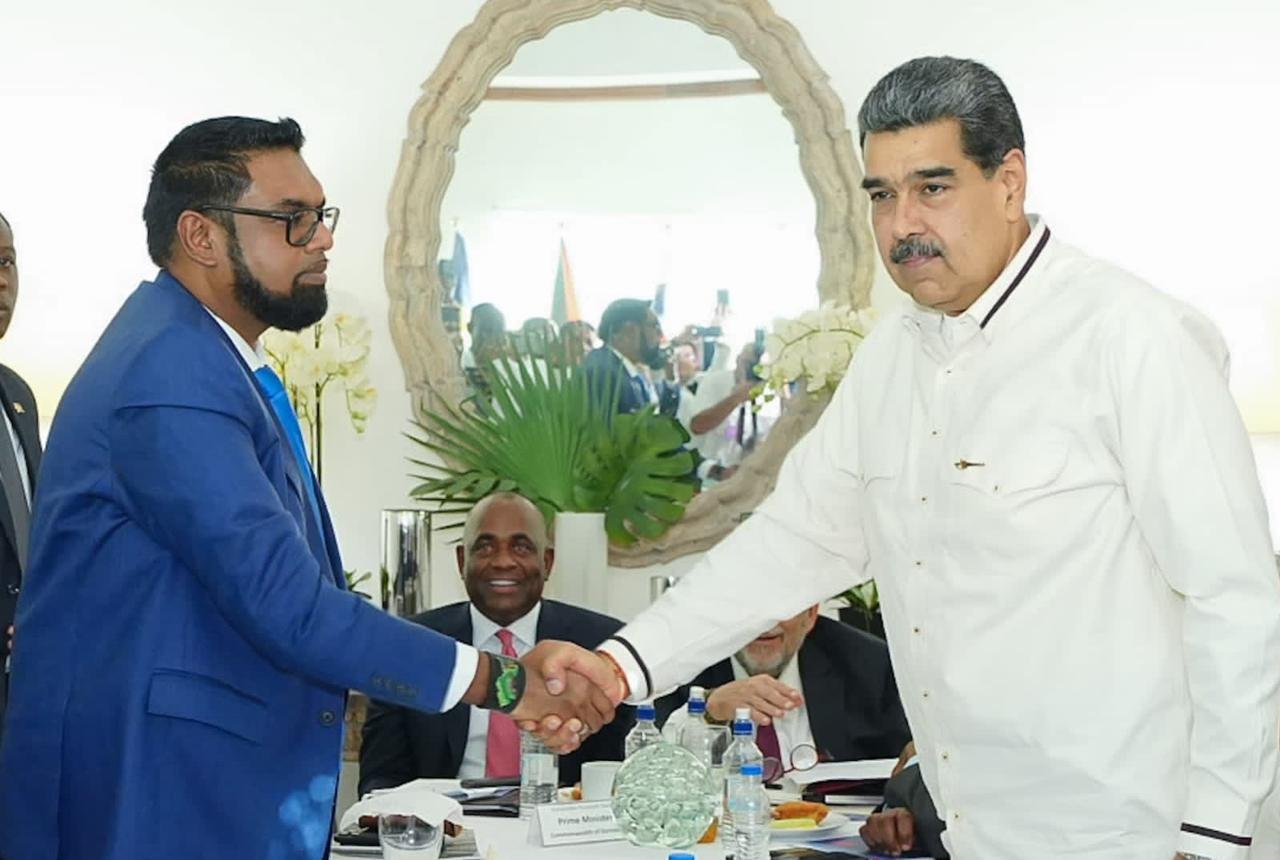The Timeline | A Fact-Based Chronology of the Guyana-Venezuela Border Controversy
In a gripping exploration of geopolitical complexities, we delve into the intricate tapestry of the enduring Guyana-Venezuela border controversy. This historical saga unfolds against the backdrop of territorial claims, diplomatic maneuvers, and strategic shifts, providing a compelling narrative of resilience and triumph. As we dissect the annals of history, we uncover the challenges faced by Guyana, a nation steadfast in its defense of territorial integrity, against the backdrop of a tumultuous relationship with Venezuela.
Map of British Guiana
Early 19th Century: Guyana's Ascent Amidst Turmoil
The epic tale takes root in 1814, amidst the upheavals of the Napoleonic Wars, as the United Kingdom officially takes command of the Essequibo region, encompassing the Dutch Guiana, now modern-day Guyana. This strategic acquisition solidifies Guyana's emergence in South American territories.
Mid-19th Century: Guyana's Defiance in the Face of Challenges
Fast-forward to the 1840s, and Guyana faces a challenge from Venezuela, which asserts its claim to the Essequibo region, questioning the validity of the 1814 agreement. The bone of contention centers around disputed border markers along the Orinoco River, yet Guyana stands steadfast in its historical legitimacy.
The Orinoco River
Late 19th Century: Guyana's Pursuit of Diplomatic Resolution
In 1897, recognizing the necessity for resolution, Venezuela and the UK choose arbitration. The Paris Arbitral Tribunal emerges as a beacon of diplomacy, dedicated to settling the boundary dispute over the Essequibo region. The Tribunal's 1899 "Arbitral Award" overwhelmingly favors British Guiana, marking a significant diplomatic victory for Guyana amidst subsequent debates over its validity.
The Arbitral Tribunal and Counsel, Paris 1899. Established in 1897 with the Treaty of Arbitration, signed in Washington, to determine the boundary line between Venezuela and British Guyana. Photograph by Eugène Pirou, Boulevard Saint-Germain, Paris
Twists and Turns in the 20th Century: Guyana's Unyielding Resolve
By 1928, Venezuela solidifies its stance through a boundary agreement with Brazil, reinforcing the principles of the 1899 Award. The 1960s bring the involvement of the United Nations, leading to the signing of the Geneva Agreement in 1966. Despite tensions, marked by a Venezuelan incursion into Ankoko Island in the Cuyuni River, Guyana stands resilient.
Geneva Agreement 1966, United Nations
Late 20th Century: Guyana's Steadfast Defense of Territorial Integrity
In 1982, Guyana fortifies its position by ratifying a new constitution, placing emphasis on territorial integrity. Despite diplomatic efforts in the ensuing decades, Guyana maintains an unwavering stance against the complexities of the disputes.
21st Century Escalation: Guyana's Strategic Diplomacy
In 2015, Guyana turns to the United Nations for an alternative dispute resolution, coinciding with the discovery of offshore oil reserves by ExxonMobil in contested waters. The matter escalates in 2018 as Guyana courageously refers the dispute to the International Court of Justice (ICJ), overcoming initial resistance from Venezuela.
Landmark ICJ Decision: Guyana's Hope for Resolution
In 2020, a pivotal moment unfolds as the ICJ asserts jurisdiction to hear Guyana's case against Venezuela, infusing newfound hope for resolution and justice.
International Court of Justice
Current Developments: Guyana's Diplomatic Triumphs
Amidst rising tensions, President Nicolas Maduro issues a sovereignty decree in 2021. Fast forward to 2023, and Guyana's National Assembly reaffirms sovereignty. Diplomatic talks in December 2023 between President Irfaan Ali and President Nicolas Maduro yield a joint declaration, potentially paving the way for a harmonious resolution to this longstanding dispute.
Guyana President Irfaan Ali (left) in a handshake with Venezuela President Nicolas Maduro. Dominica Prime Minister Roosevelt Skerrit observes the greeting.
Sources: Ministry of Foreign Affairs, Ministry of Home Affairs Guyana, United Nations, Guyana Constitution, International Court of Justice, Parliament of Guyana, Department of Public Information Guyana






